A Chinese virologist's changing fortunes for speaking up against zero-Covid
China's renowned virologist Guan Yi has reappeared in public as the newly appointed chief of the Shanghai Virus Research Institute, after being denounced for his alarmist views of the pandemic at the start of its outbreak and speaking against the zero-Covid measures. But now, will his return mark an end to the harsh restrictions that have left the Chinese economy in a dire state?
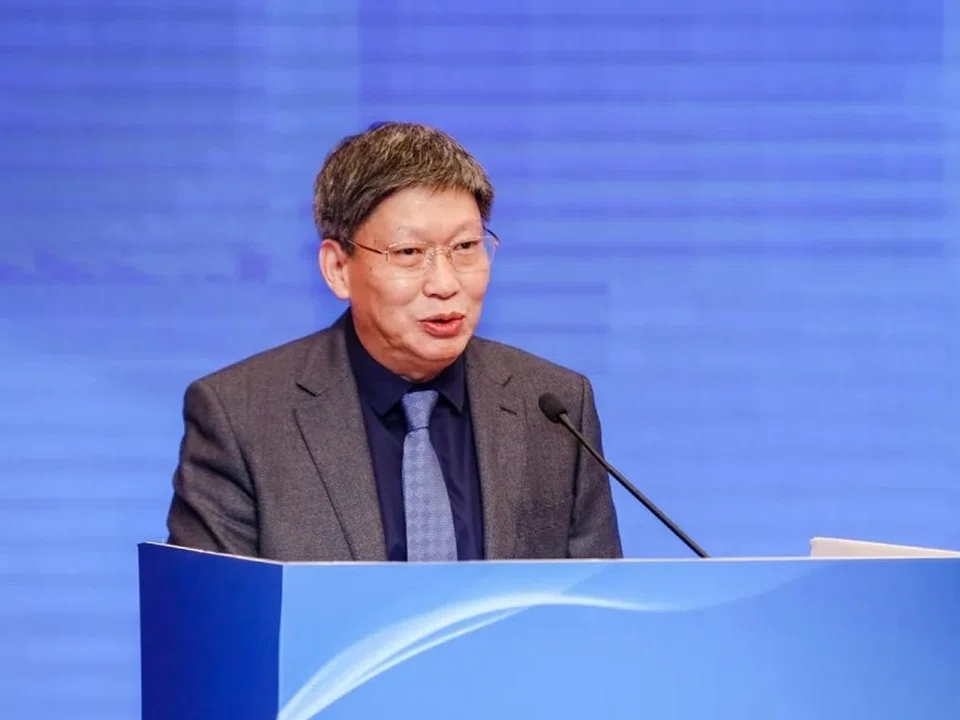
After months away from the public eye, renowned virologist Guan Yi was appointed chief of the Shanghai Virus Research Institution, which was officially established on 26 September.
Netizens promptly dug up past events and questioned the appointment decision. They claim that Guan does not deserve the position as he had previously deserted front-line responsibility. Meanwhile, Guan's appointment also sparks speculation that an easing of the country's anti-Covid policy is imminent since he had publicly opposed China's zero-Covid policy in the past.
Marked as a 'deserter'
Guan Yi's label as a "deserter" emerged in January 2020 at the beginning of the pandemic.
On 23 January 2020, Chinese media platform Caixin published an article titled "This time I'm scared" (《这次我害怕了》) where Guan, then director of the University of Hong Kong's State Key Laboratory of Emerging Infectious Diseases, recounted his experience when he led a team to collect samples from Wuhan on 21 January. He saw that protection measures against the virus were extremely inadequate, and the team also encountered many obstacles while tracking down the source of the virus.
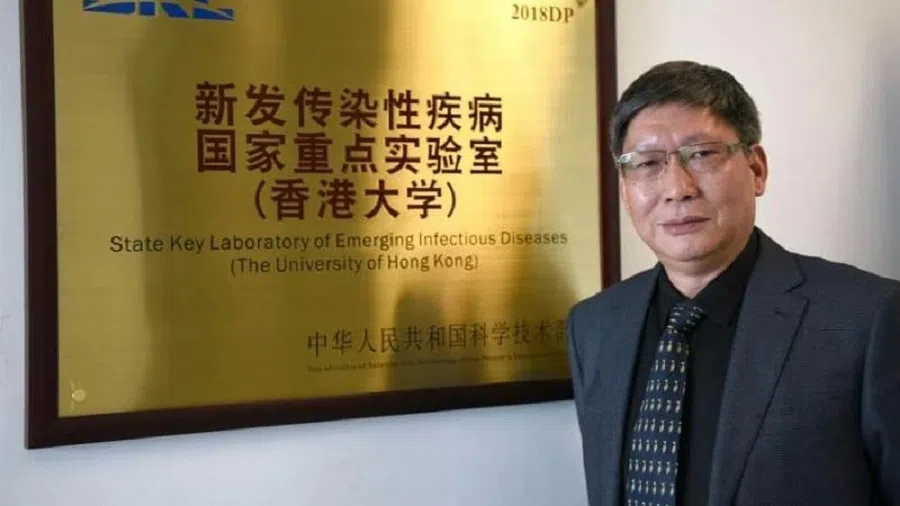
Guan said in the article that few research institutions in Wuhan were willing to cooperate with him and many refused to see him. He criticised Wuhan's inadequate anti-epidemic measures and predicted that the scale of the coronavirus outbreak would be "more than ten times" larger than that of the severe acute respiratory syndrome (SARS) crisis.
Guan's "deserter" remark drew flak from netizens who immediately criticised him for misleading the masses with lies and spreading alarmist rumours.
He shared that he has never felt worried in all his experience because most of the other situations were controllable. However, he felt "afraid" this time. He surmised that Wuhan has already "passed the 'golden period' for prevention and control", and that even an "experienced soldier" like himself would want to run away.
After less than 48 hours in Wuhan, Guan left the epicentre of the pandemic and returned to Hong Kong. The next day, Wuhan entered an unprecedented lockdown.
However, Guan's "deserter" remark drew flak from netizens who immediately criticised him for misleading the masses with lies and spreading alarmist rumours. They condemned him for being a coward, asserting that they had never seen a "deserter" admit to being one. The internet attacked Guan and conspiracy theories surfaced, claiming that Guan had made those remarks to vent his frustrations after failing to get help for his academic work in Wuhan.
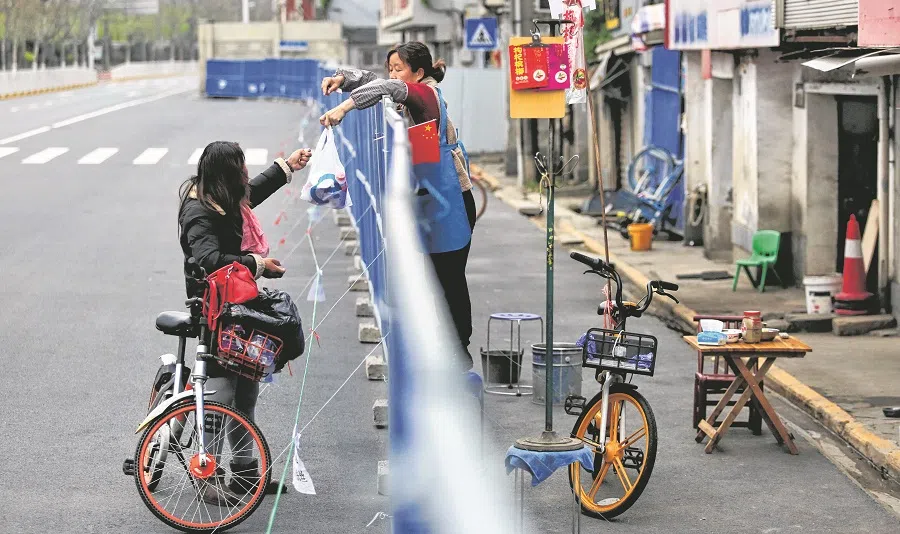
After this incident, Guan rarely appeared in the media, and gradually vanished from the public eye.
An outstanding bird flu expert
Chinese netizens, however, had overlooked the fact that Guan's professional achievements are second to none in China.
Based on internet sources, Guan has published over 240 Science Citation Index academic papers, including 19 papers in two of the most respected scientific journals, Science and Nature; three papers in the New England Journal of Medicine; ten papers in the world-leading medical journal The Lancet; seven papers in a sub journal of Nature; and 14 papers in the Proceedings of the National Academy of Sciences of the United States of America.
His papers have also been cited nearly 30,000 times, which earned him the accolade of a "Highly Cited Researcher" and one of the "World's Most Influential Scientific Minds" by the prestigious Thomson Reuters Corporation for five consecutive years.

Born in Jiangxi province's Ningdu county, 66-year-old Guan graduated from Jiangxi Medical College in 1983. He obtained his PhD from The University of Hong Kong in 1997 and is a foreign fellow of the UK's Royal College of Physicians.
Guan was one of the first scientists to isolate the genome sequence of SARS and to propose that palm civets were a major carrier of the virus.
Guan was also an outstanding pupil and research assistant to renowned academician of the Chinese Academy of Engineering Zhong Nanshan and had closely assisted Zhong in fighting the 2003 SARS outbreak.
During the SARS outbreak, Zhong recalled asking Guan in the wee hours of the morning to join him in studying the virus, to which Guan agreed without hesitation. They successfully identified a wild animal market as the source of the virus, and Guan was one of the first scientists to isolate the genome sequence of SARS and to propose that palm civets were a major carrier of the virus.
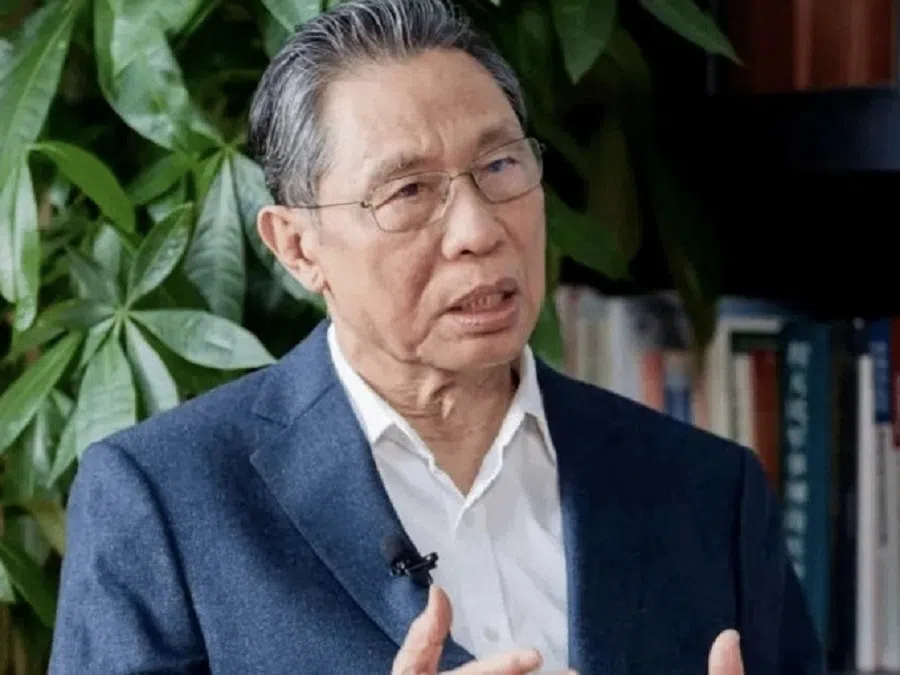
In February 2020, Guan published a joint paper with Hu Yanling of Guangxi Medical University and her team, suggesting that pangolins could be a likely intermediate host facilitating coronavirus transfers from bats to humans.
In recognition of Guan's significant contributions to the understanding of emerging infectious diseases across Asia, especially SARS; the identification of the source of outbreaks; and the proposal of measures and strategies to prevent and control outbreaks, he received the prestigious John Dirks Canada Gairdner Global Health Award in April last year.
Controversy over opposition to zero-Covid
The same month after Guan won the Canada Gairdner Global Health Award, ifeng.com ran an exclusive interview with him, his first since leaving the public eye over the "deserter" controversy.
Guan was as sharp as ever with his words, noting that China did well in the first half of its pandemic efforts but needed to consider what to do after.
"It has been decades since China opened up, and such high-cost control measures are not sustainable, and so building up herd immunity and resistance through vaccination is the only choice."
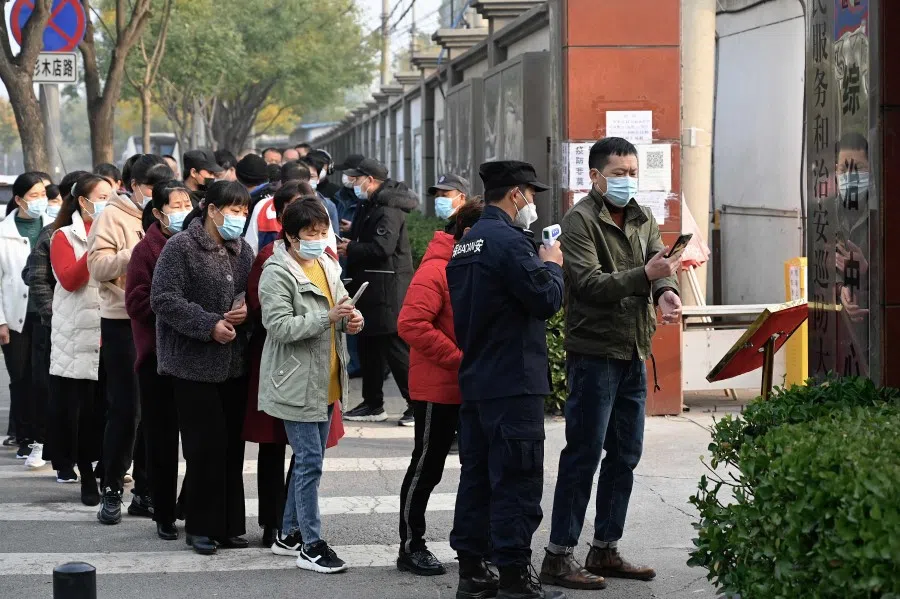
He said that it was a choice between vaccines and continuing its "lockdown" - there was no third option. He said frankly, "It has been decades since China opened up, and such high-cost control measures are not sustainable, and so building up herd immunity and resistance through vaccination is the only choice."
He added that fighting the pandemic is a long-term effort, noting that "I don't know when the pandemic will end but it is probable that it will become endemic".
At the time, China had achieved a decent balance between the economy and controlling the pandemic with its strict measures, and the internet was full of proud sentiments, extolling China as an "outstanding student" and its "efforts were worth copying".
But Guan said, "There are often people who have a mentality of 'we win, they lose' or vice versa. When it comes to the pandemic, I believe that the people of the world are all losers. Whether losses in life, property, economy, or even political strategic changes, those are all losses. This pandemic has changed human history, and rewritten human civilisation."
In November last year, there was a major shift in the pandemic trend. Following several mutations, the death rate fell drastically, and many countries actively pushed the vaccines and announced "living with the virus", while there was intense debate in China over whether to live with the virus or maintain zero-Covid.
"I think putting the people's antibodies to the test is more important. There should be some exposure, so everyone understands their own immunity."
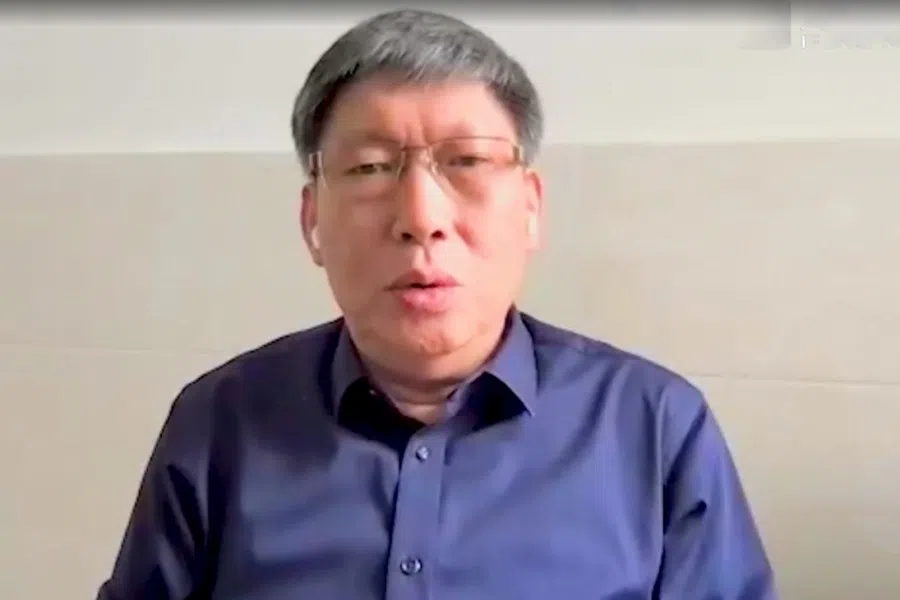
During an interview with Phoenix TV, Guan said clearly, "If zero-Covid is the target, I think we have no chance, because this virus is here to stay." He added, "Now, local governments are taking a zero-tolerance approach to sporadic cases. If so, I feel our country's economy will crumble."
He said, "We shouldn't test everybody for Covid-19 at the drop of a hat. I think putting the people's antibodies to the test is more important. There should be some exposure, so everyone understands their own immunity."
However, the video of the interview was removed in China, and Guan faded from the public eye again, until his appointment as head of the new Shanghai Virus Research Institution.
Apart from digging up old scores upon Guan's appointment, some netizens speculated if this was a signal for the easing of the zero-Covid policy. A "Big V" (大V, verified internet personality) in the medical sector even spoke up for Guan, saying that he did not just conduct experiments and write papers; in 2003 during the SARS epidemic, he took many unknown risks to collect phlegm samples from SARS patients to identify the pathogen. "Such a person can be called a true warrior," the Big V praised.
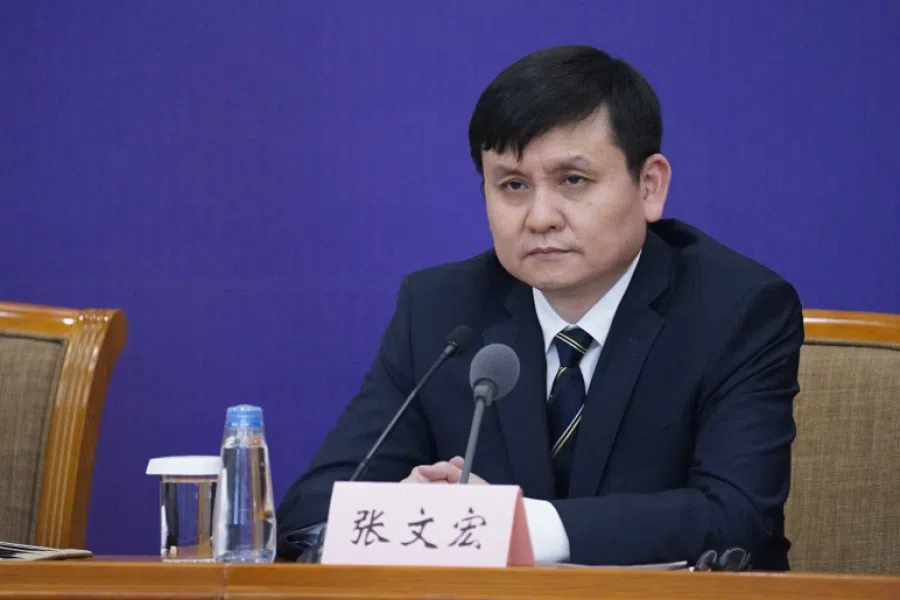
While Guan's "prophecies" before leaving Wuhan were slammed by netizens, they were proven true as the pandemic developed. And now, China's pandemic measures are at a new juncture. Experts who previously advocated living with the virus, such as Zhang Wenhong, were blasted online several times and have become more circumspect, and their voices have become weaker.
Guan's return shows that despite being involved in controversy, his professionalism and academic ability remain unaffected and are still recognised by those in the field and the Shanghai authorities.
For three consecutive days since 24 September, former Global Times editor-in-chief Hu Xijin called on experts to speak up on pandemic measures, and urged agencies not to restrict their voices. He also asked netizens to keep their cool and not vilify or pressure these experts.
On learning of Guan's return to mainland China to take on his post, one netizen shared the realisation that Hu Xijin was calling on Guan, rather than Zhang, to speak up.
The Shanghai Virus Research Institution is established by the Shanghai municipal government and Shanghai Jiao Tong University. Hence, Guan's return shows that despite being involved in controversy, his professionalism and academic ability remain unaffected and are still recognised by those in the field and the Shanghai authorities. This is a positive signal for a society that is in urgent need of scientific pandemic measures.
Related: Is China ready to live with the virus? | Why China is determined to achieve 'zero-Covid' | Why is China obsessed with zero-Covid? | Families in Wuhan want accountability from those who covered up outbreak | China needs to break free of its zero-Covid policy. Here's how. | Who saved Dr Zhang Wenhong from punishment for questioning China's Covid-19 policy?


![[Big read] When the Arctic opens, what happens to Singapore?](https://cassette.sphdigital.com.sg/image/thinkchina/da65edebca34645c711c55e83e9877109b3c53847ebb1305573974651df1d13a)


![[Video] George Yeo: America’s deep pain — and why China won’t colonise](https://cassette.sphdigital.com.sg/image/thinkchina/15083e45d96c12390bdea6af2daf19fd9fcd875aa44a0f92796f34e3dad561cc)